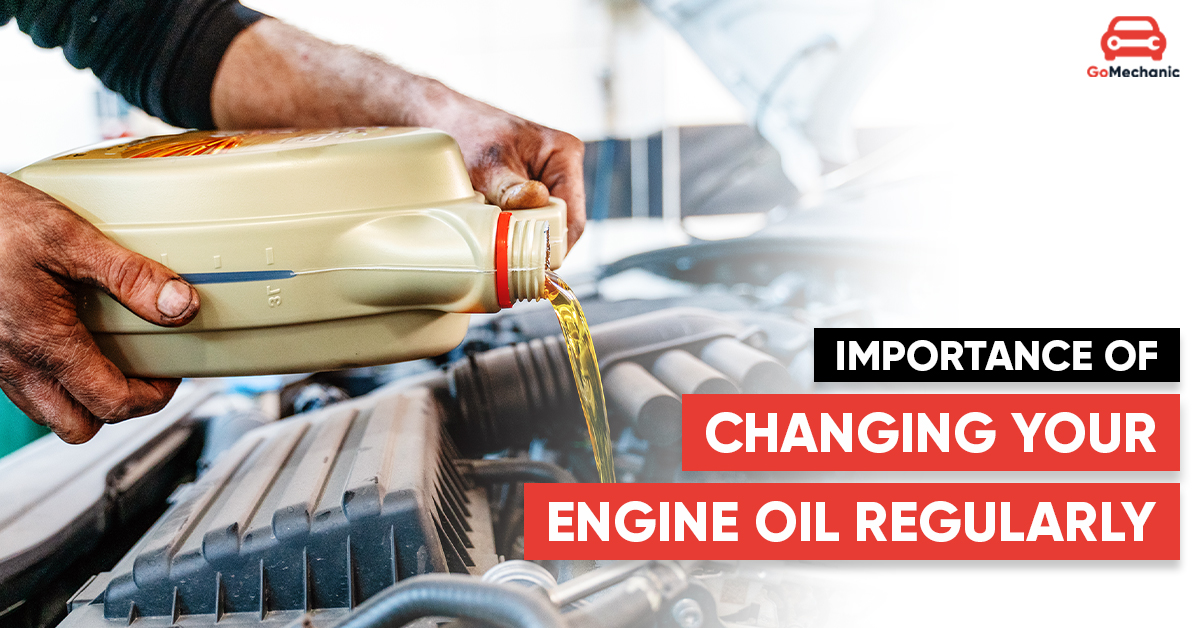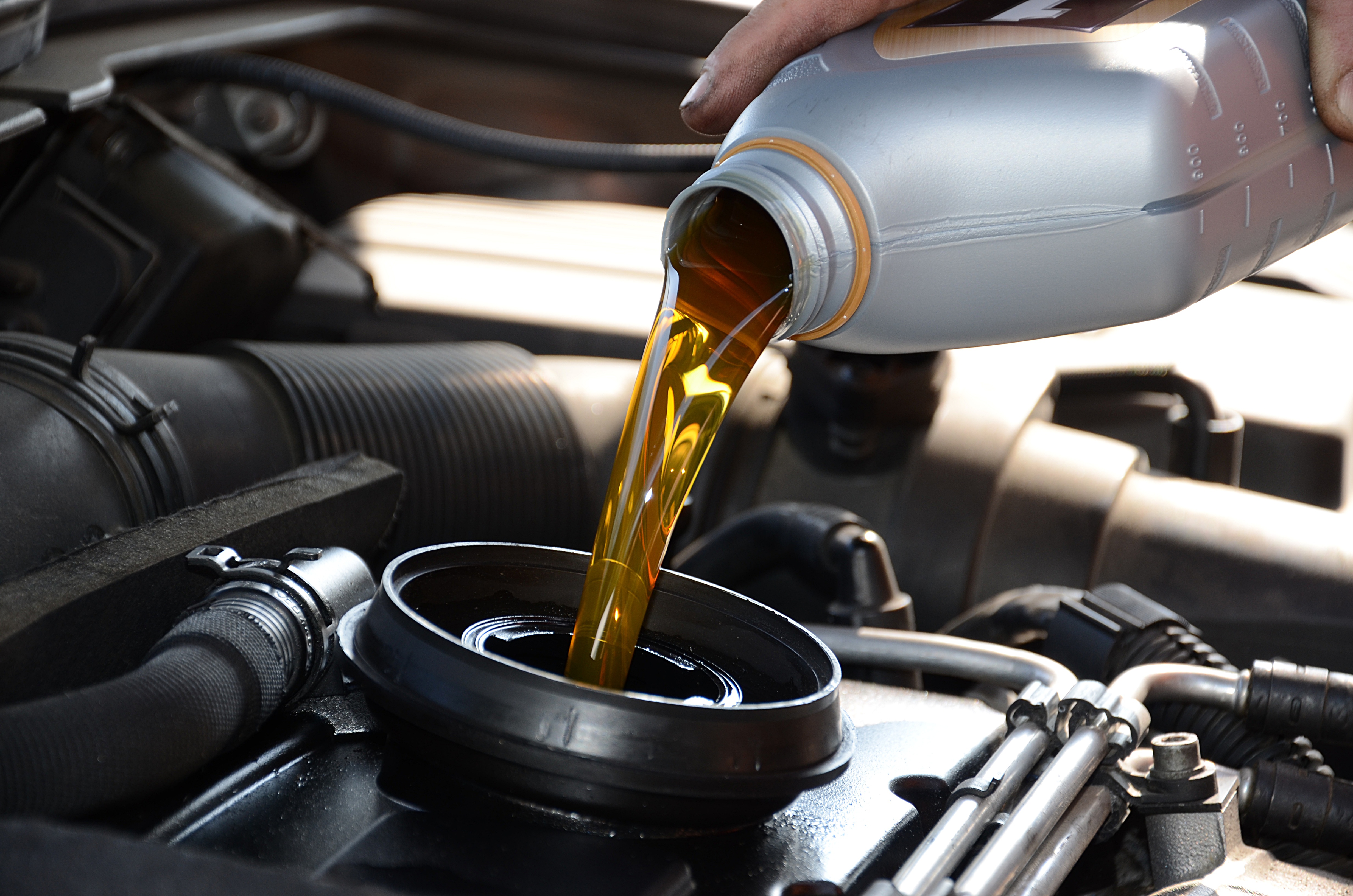Regular oil changes are crucial for maintaining the health of your engine. Neglecting to change your engine oil can lead to increased wear, reduced performance, and potential engine failures.
It is essential to change your engine oil regularly to ensure optimal lubrication and protection of engine components. In addition, regular oil changes can improve gas mileage, extend engine lifespan, and maintain engine power and efficiency. So, don’t put off your oil change – it’s a small investment that can make a big difference in the long run.

Credit: gomechanic.in
The Role Of Engine Oil
The role of engine oil in the proper functioning of a vehicle is crucial. Engine oil plays a key role in lubricating the various components of the engine, reducing friction and ensuring smooth operation. This lubrication is essential for preventing overheating, which can lead to damage and decreased efficiency. Regular oil changes are necessary to maintain the quality and effectiveness of the engine oil, ensuring that it continues to provide the necessary lubrication and protection to the engine components.
Consequences Of Neglecting Oil Changes
Failure to change your engine oil can lead to increased wear on vital engine components, causing them to degrade and malfunction. This can result in potential engine failures, leading to costly repairs or even the need for a new engine. Neglecting oil changes can also lead to decreased fuel efficiency, as the engine has to work harder due to the lack of proper lubrication. Additionally, clogged oil systems can lead to overheating and increased emissions, impacting the overall performance and environmental impact of your vehicle. Moreover, failure to adhere to recommended oil change intervals can void your warranty and decrease the resale value of your vehicle, causing further financial setbacks. Therefore, it is crucial to prioritize regular oil changes to ensure the longevity and optimal performance of your vehicle.
Enhancing Performance And Efficiency
Regularly changing your engine oil is crucial for improving acceleration and optimizing fuel consumption. When oil becomes old or low, it leads to increased friction, which can negatively impact your engine’s performance. By getting an oil change at regular intervals, you can restore and maintain your engine’s power, resulting in improved acceleration.
Moreover, changing your engine oil helps lubricate essential components, reducing friction and preventing potential damage to the engine. It also ensures that the oil maintains its optimal viscosity, allowing it to flow easily through the engine and reach all necessary parts. This not only enhances performance but also increases efficiency.
In addition, clean oil is essential for keeping the engine properly lubricated and running smoothly. It improves gas mileage by reducing fuel consumption caused by poor engine lubrication. Therefore, it is important to prioritize regular engine oil changes to maintain the overall performance and efficiency of your vehicle.
Extending Your Car’s Lifespan
Changing your engine oil regularly is crucial for maintaining your car’s lifespan. By doing so, you are effectively protecting the engine parts and ensuring their longevity. Engine oil acts as a lubricant, reducing friction between the moving components, preventing wear and tear. It also helps to dissipate heat, keeping the engine cool and preventing overheating.
Regular oil changes also help to maintain the value of your car. Potential buyers are more likely to be interested in a vehicle with a well-maintained engine, which can increase its resale value. Additionally, neglecting oil changes can lead to engine problems and potentially costly repairs in the future.
Overall, changing your engine oil at recommended intervals is a simple yet effective way to extend your car’s lifespan, protect its engine parts, and maintain its value. Don’t underestimate the importance of this routine maintenance task.
Understanding Oil Degradation
|
Oil is a crucial component of your engine that keeps it running smoothly and efficiently. However, over time, the oil degrades from heat and pressure, as well as contamination from dirt, dust, and other particles. The effects of heat and pressure on the oil can cause it to become thick and lose its ability to lubricate the engine properly. This can lead to increased friction, wear, and tear on the engine components, which can ultimately result in engine failure. |
|
Contamination over time is another issue that can occur if you don’t change your engine oil regularly. As the oil circulates through the engine, it picks up dirt and other particles that can clog the oil filter and other components. This can lead to decreased oil pressure, reduced engine performance, and potential damage to the engine. By changing your engine oil at regular intervals, you can help prevent these issues and keep your engine running smoothly for years to come. |
The Importance Of Regular Maintenance
Regular maintenance, including changing your engine oil, is crucial for the overall health and performance of your vehicle. Failing to change the engine oil can lead to increased wear, reduced MPG, overheating, and potential engine failures. By changing the oil at regular intervals, you can maintain optimal engine lubrication, improve performance, and extend the longevity of your vehicle.
| Why is It Important to Change Your Engine Oil? |
| The Importance of Regular Maintenance |
| Scheduling Oil Changes |
Choosing The Right Engine Oil
Viscosity Grades Explained:
| Viscosity Grades | Explanation |
|---|---|
| Synthetic Oil | Provides better protection and performance in extreme temperatures and under heavy loads. It also lasts longer and offers improved fuel efficiency. |
| Conventional Oil | Offers standard protection and performance for everyday driving conditions. It is typically more affordable than synthetic oil. |
Choosing the right engine oil is crucial for the optimal performance and longevity of your vehicle. Viscosity grades play a significant role in determining which oil is suitable for your engine. Synthetic oil, with its advanced formulation, offers superior protection and performance, especially in extreme conditions. It is designed to withstand high temperatures and heavy loads, ensuring optimal lubrication and reducing wear on engine components. Synthetic oil also provides improved fuel efficiency and lasts longer than conventional oil.
On the other hand, conventional oil is a more affordable option that provides standard protection and performance for everyday driving conditions. While it may not offer the same level of performance as synthetic oil, it still meets the requirements of most vehicles.
When choosing engine oil, consider factors such as your vehicle’s manufacturer recommendations, driving conditions, and personal preferences. Regularly changing your engine oil according to the recommended intervals is essential to maintain optimal engine performance and protect your investment.

Credit: grimmermotors.co.nz
Diy Oil Change Tips
- Oil filter
- Oil drain pan
- Socket wrench
- Oil filter wrench
- New engine oil
- Funnel
- Shop towels
Changing your engine oil regularly is crucial for maintaining the performance and longevity of your vehicle. Here is a simple guide to help you perform a DIY oil change:
- Make sure your vehicle is parked on a level surface and the engine is cool.
- Locate the oil drain plug underneath your car and place the oil drain pan beneath it.
- Using a socket wrench, unscrew the oil drain plug and allow the old oil to drain completely into the pan.
- Once the oil has drained, replace the drain plug and tighten it securely.
- Locate the oil filter and use an oil filter wrench to remove it.
- Dispose of the old filter and lubricate the rubber gasket of the new filter with a bit of fresh oil.
- Screw on the new filter by hand until it’s tight, and then give it an extra quarter turn using the filter wrench.
- Open the hood and locate the oil filler cap.
- Using a funnel, pour the recommended amount of new engine oil into the engine.
- Replace the oil filler cap and close the hood.
- Check the oil level using the dipstick, and add more oil if necessary.
- Dispose of the old oil and filter properly at a recycling center.
Remember to consult your vehicle’s manual for specific instructions and recommended oil type. By following these simple steps, you can save money and ensure that your engine is well-maintained.

Credit: www.elitegarages.co.uk
Frequently Asked Questions
What Will Happen If I Don’t Change Engine Oil?
Not changing engine oil can cause increased wear, worse MPG, overheating, increased emissions, clogged systems, voided warranty, decreased resale value, and potential engine failures. It’s essential to change your oil to avoid these issues and keep your engine running smoothly.
How Often Should I Change Engine Oil?
To ensure optimum performance and longevity of your engine, it is recommended to change the engine oil every 3,000 to 5,000 miles or every 3 to 6 months, depending on your driving habits and the type of oil used. Regular oil changes help to lubricate essential engine components, reduce friction, improve gas mileage, and prevent potential damage to the engine.
Don’t delay your oil change as it can lead to increased wear, decreased resale value, and potential engine failures.
Does Oil Change Make Engine Run Better?
Regular oil changes can improve engine performance by reducing friction and maintaining optimal viscosity. This can lead to better acceleration and increased efficiency.
How Does An Oil Change Improve Performance?
Regular oil changes improve engine performance by lubricating essential engine components, reducing friction, and preventing potentially costly damage. With optimal viscosity, clean oil flows easily through the engine and reaches all necessary components. Poor engine lubrication can lead to increased fuel consumption, so having enough clean oil in the engine also improves gas mileage.
Overall, regular oil changes can extend engine life, improve acceleration, and increase efficiency.
Conclusion
Changing your engine oil is crucial for maintaining peak performance and extending the lifespan of your vehicle. Regular oil changes ensure proper lubrication, prevent wear and tear, improve gas mileage, and reduce the risk of costly engine damage. By prioritizing this simple maintenance task, you can safeguard your car’s overall health and enjoy smoother, more efficient driving experiences.
